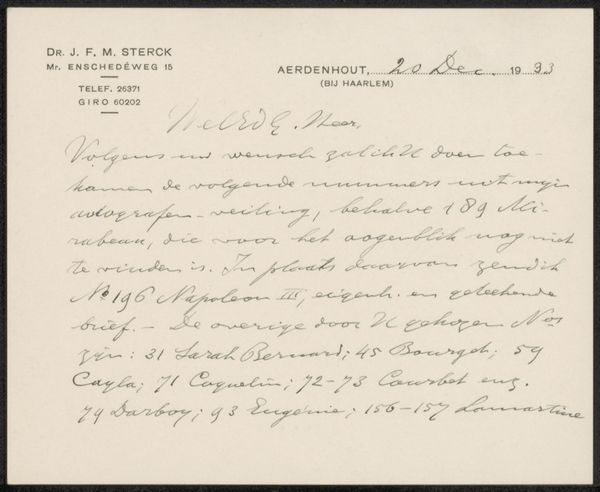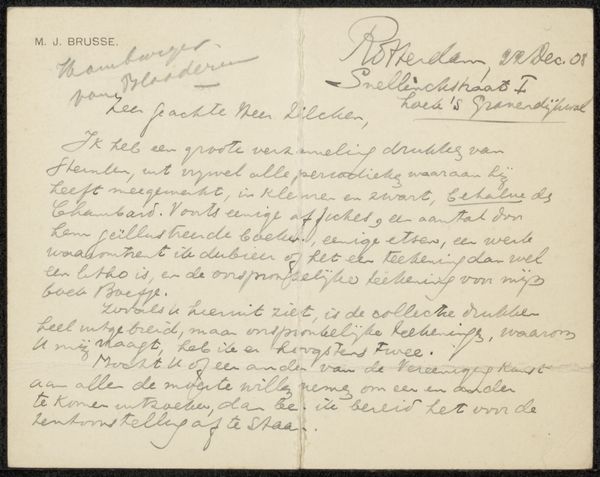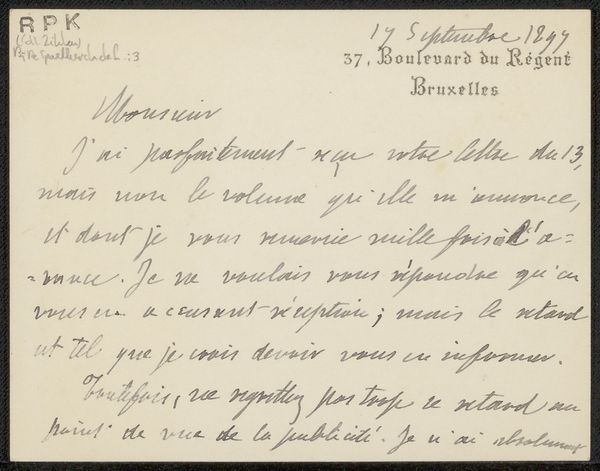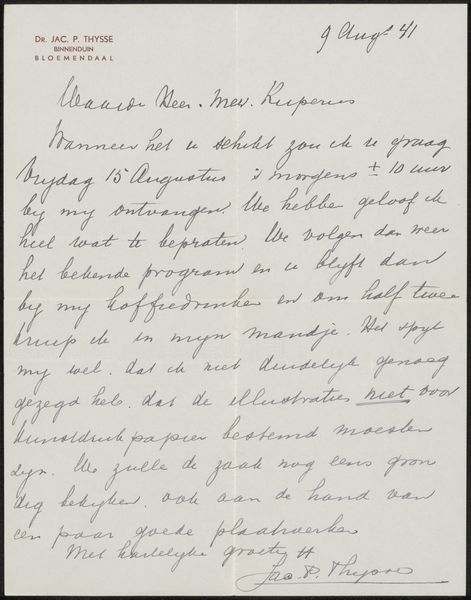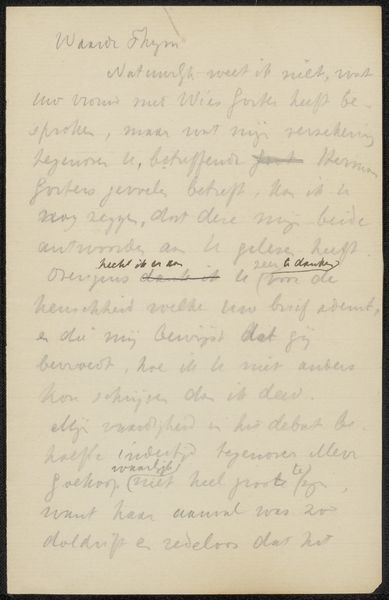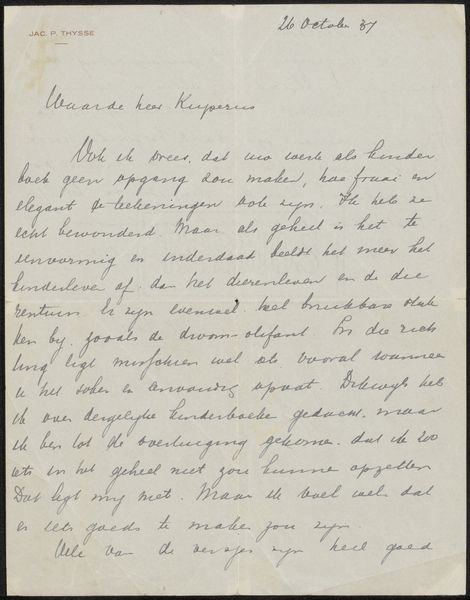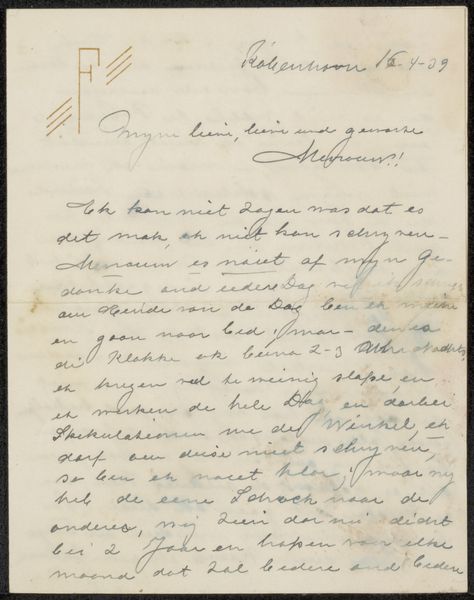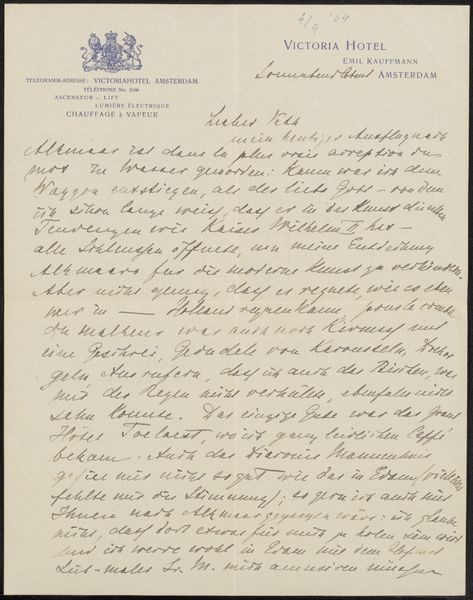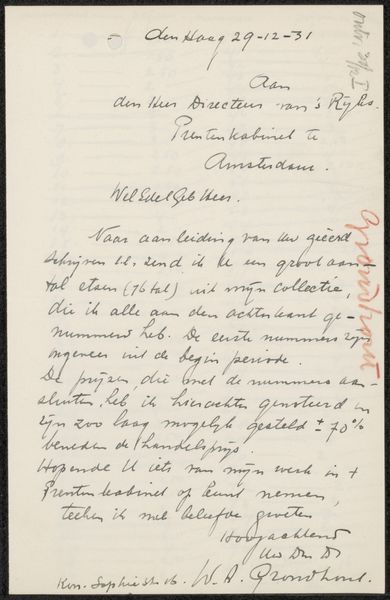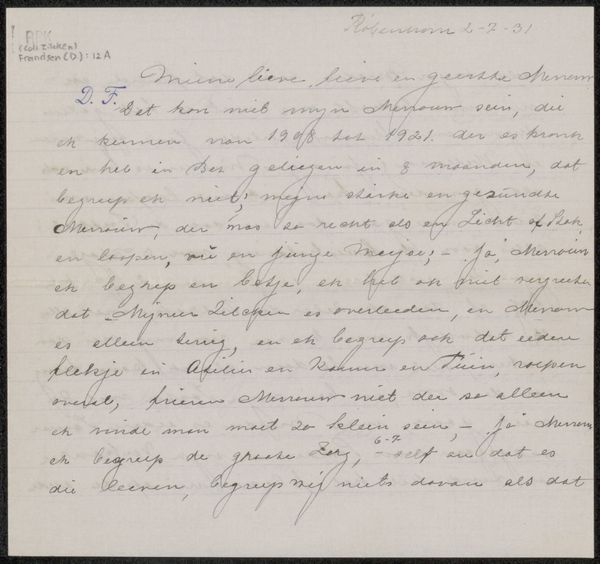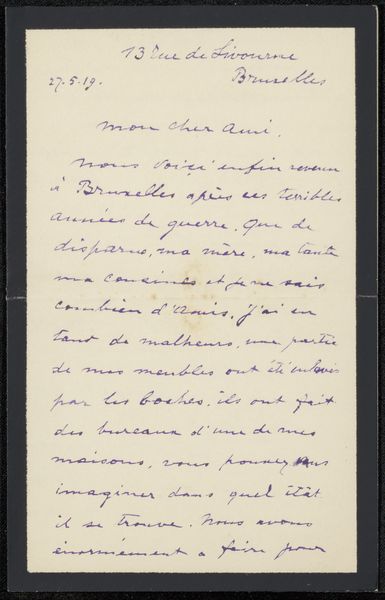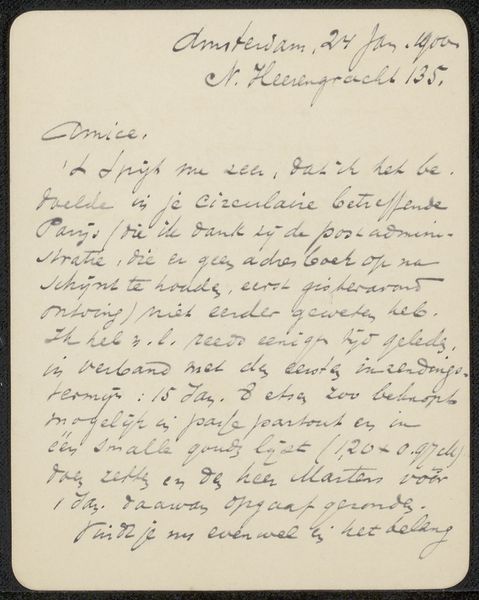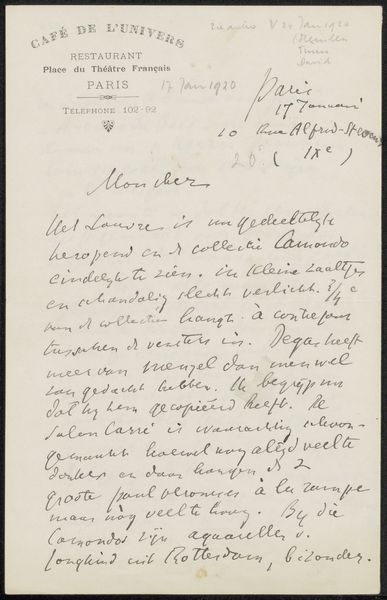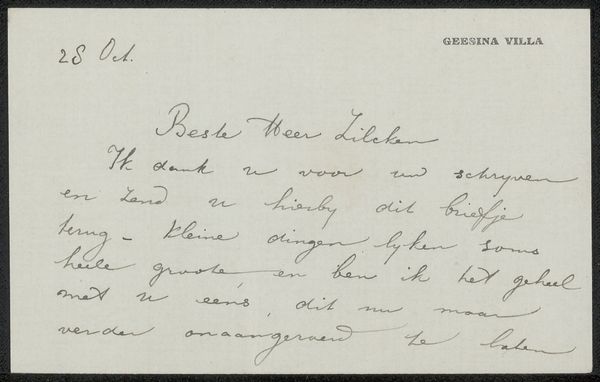
drawing, paper, ink
#
script typeface
#
drawing
#
sand serif
#
script typography
#
hand-lettering
#
hand drawn type
#
feminine typography
#
hand lettering
#
paper
#
ink
#
hand-drawn typeface
#
thick font
#
handwritten font
#
calligraphy
Copyright: Rijks Museum: Open Domain
Curator: I find something deeply affecting about this letter from Tine Broekema to Françoise W.M. Bonger. The work, dated possibly between 1951 and 1957, consists of ink on paper. The handwriting itself feels incredibly intimate. Editor: The eye definitely dances across this page! There’s something very pleasing about the shapes each letter creates; some are sharp, and others very round and gentle. It conveys a personality, almost regardless of the text itself. Curator: Precisely! Knowing that Françoise Bonger was an instrumental figure in preserving Vincent van Gogh's legacy after his brother Theo's death lends even more weight. Here, a woman writes to thank Bonger, presumably for an act of kindness, her elegant handwriting a testament to the formal customs of that era. The gesture itself highlights female networks of support during that time. Editor: Yes, absolutely. Calligraphy and penmanship served as indicators of social grace and education, particularly for women of the upper classes. I’m drawn to how the looped ascenders and descenders give the whole composition a kind of interwoven, supportive feeling. Look at the date and address, meticulously inscribed – symbols of order, yet executed with clear personal style. Curator: Right. The visual weight of this letter brings to the forefront the labor involved in correspondence during that period. What does this painstaking script signal about social power, literacy, and gender? In this historical moment, handwriting becomes a very concrete form of communication and expression. Editor: Definitely a lost art, to communicate in this way. The flourishes and the slight inconsistencies point to the very human act of writing. It suggests warmth, vulnerability, and consideration—all these concepts feel so distant from our instantaneous digital age. Curator: Examining this correspondence, one can reflect upon the historical importance of preserving individual voices. This is a seemingly simple thank you letter but it evokes larger discourses surrounding memory, intimacy, and the labor of writing itself. Editor: I agree. Ultimately, this note becomes more than just a message; it is a reflection on our own connection with others—a small window into shared humanity across time.
Comments
No comments
Be the first to comment and join the conversation on the ultimate creative platform.
